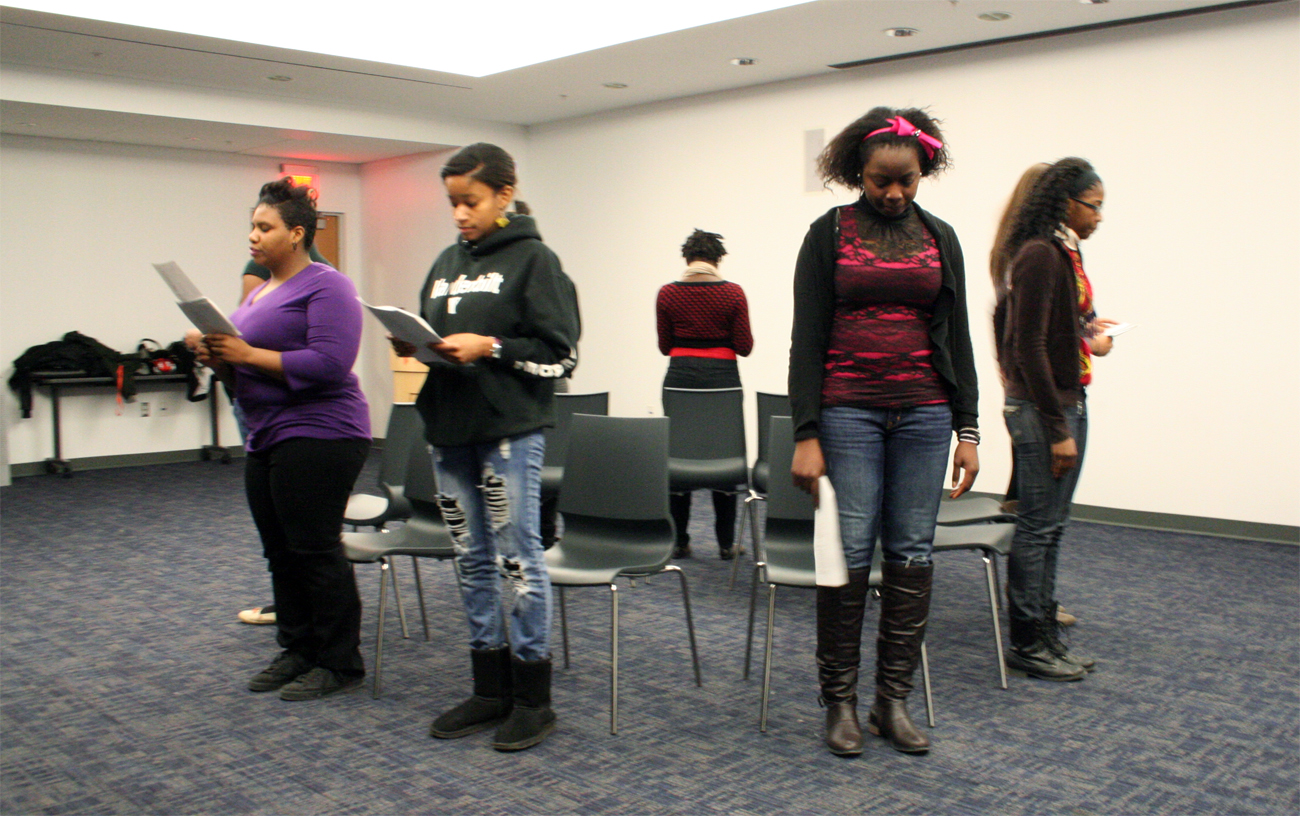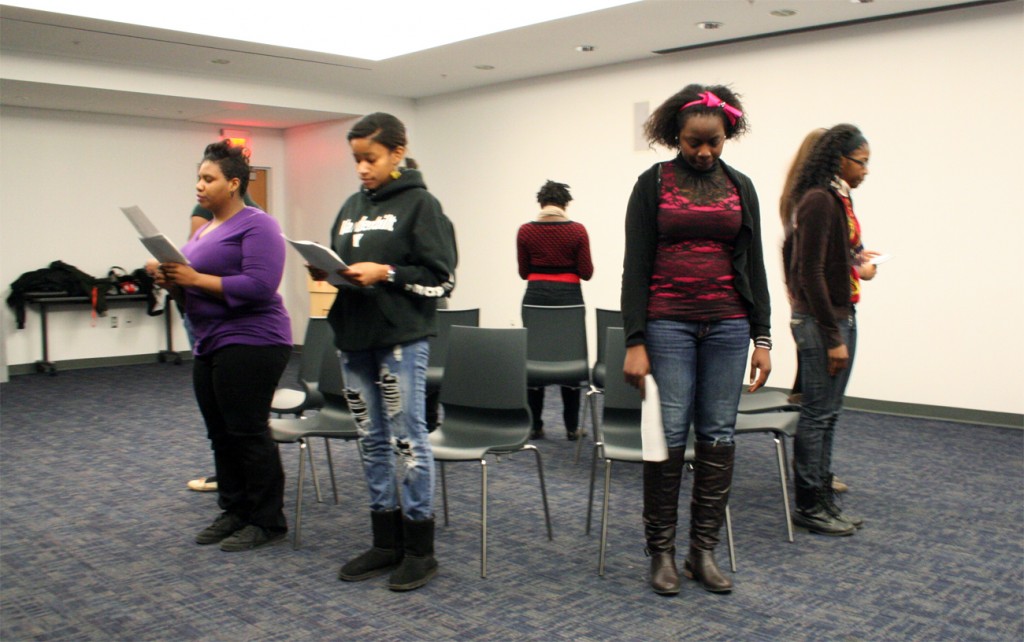

After the passing of Dr. Margaret Wade-Lewis, members of the African Women’s Alliance (AWA) E-board were devastated. According to AWA President Danielle S. Ladson, Wade-Lewis was more than just a professor to some members of the group – she was a friend and mentor.
“It hit really hard,” Ladson said. “She was more than just a professor or an advisor. People felt they could talk to her as a friend. She gave more than just academic advice – she talked to people about morals and ethics and being a woman of color.”
The organization was developed by Wade-Lewis in 1980, and Ladson said its members are striving to make it grow as they celebrate their 30th anniversary this year.
AWA is a part of the umbrella organization the Black Student Union (BSU), and they try to collaborate with other programs in and outside the BSU. Ladson said AWA puts on about 20 programs a year.
“This past fall we had Kwanzaa dinner. We come together, eat, dance and celebrate,” Ladson said. “AWA puts that on every fall, the first Sunday in December, and we honored her at this past dinner. I was proud with the turnout of people who just came out to show their support [of her].”
Ladson attributes AWA’s ability to create exciting programs to the vibrancy of her E-board.
“What sets us apart is that we have so many different personalities. We don’t agree on everything. I think if we agreed on everything we’d be so boring,” she said. “I think if you can disagree and have a small debate about something, then you’re doing something right. That means you have an opinion and a passion for something, and that’s what keeps our organization looking good and going in the right direction.”
Ladson said though there isn’t enough time for the organization to do every program that her E-board comes up with, all ideas are considered. Their main focus is on programs that are educational, addressing issues like self esteem, racism and sexual health, as well as fun programs like dance workshops.
At the end of March, AWA will be hosting its annual Candy Shoppe, a program which bridges the gap between entertainment and education. According to Ladson, the program will feature games like Kama Sutra charades (fully clothed, of course) and a version of the classic game Love Connection. They will also give attendees statistics about sexually transmitted diseases and tips for sexual health.
AWA’s most recent program, made to coincide with Black History Month, is a play called “Uplifting Women of Color: In the Arms of the Men Who Love Them.” The play is based on Tyler Perry’s latest film, “For Colored Girls,” which addresses serious themes such as abandonment, betrayal and the relationships between men and women.
“Our play will be talking about rape, betrayal, homesickness, mentors, ancestors… it really talks about themes that affect people in their day-to-day life,” Ladson said. “It shows the struggles of women of color, and really of all different backgrounds.”
After the play, Ladson said there was a discussion about how it affected the women and men in the audience.
Artie Williams, a third-year sociology major who attended the program, said this event and others sponsored by AWA offer unique perspectives.
“They always give different views from African Americans about what they deal with on a day to day basis,” she said.
One thing the AWA is looking to do in the future is collaborate with the group Take Back the Night to help educate people about the importance of safe sex and getting tested.
Karly Fesolowich, a member of Take Back the Night, said collaboration with a group like AWA was a distinct possibility.
“We’re planning on cosponsoring events with other organizations in order to create a better coordinated campus,” she said of Take Back the Night.
Though AWA is an organization largely aimed at women, the current E-board has made a pointed effort to increase male involvement. Ladson said that many of the issues that AWA champions affect men as well as women, and it’s important to make men feel included.
“A lot of the themes and topics we’re talking about are not just for women and that’s what I would like to stress.” Ladson said. “I sometimes feel like men feel that there’s not anything for them on campus. Like, these women have all these uplifting, enlightening self-confident building programs and workshops, but what about us? I know there are men who have self-confidence issues. They feel the need to look a certain way just as women do, so when they get to a program like this it really makes them think.”
In addition to the contributions that AWA makes towards the campus, Ladson said she believes the organization has had a positive effect on all of the E-board.
“For me, personally, it has grown my self-confidence, and my awareness. I feel like I’m a lot stronger after being a part of AWA,” Ladson said. “Especially in my position now, I feel like I have to be a lot stronger for my ladies in my organization. You want your organization to succeed. I feel like being in this position I’ve been tested and I’ve come out on top.”
